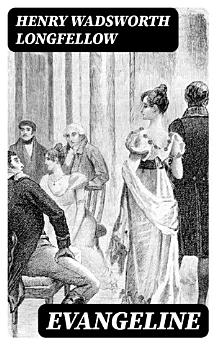Evangeline
thg 11 2022 · DigiCat
Sách điện tử
41
Trang
family_home
Đủ điều kiện
info
reportĐiểm xếp hạng và bài đánh giá chưa được xác minh Tìm hiểu thêm
Giới thiệu về sách điện tử này
In "Evangeline," Henry Wadsworth Longfellow crafts a narrative poem that intertwines love, loss, and the impacts of history through the lens of Acadian culture. Written in blank verse, the text follows the tragic journey of Evangeline, separated from her beloved Gabriel during the forced displacement of Acadians from Nova Scotia. Longfellow's lyrical style, characterized by rhythmic cadences and vivid imagery, transports readers to a time of cultural upheaval while simultaneously celebrating the enduring power of hope and love amid adversity. The poem, contextualized within the broader Romantic Movement, draws heavily on American themes of nostalgia and nature, resonating with an audience grappling with their own contemporary challenges. Henry Wadsworth Longfellow, a prominent figure in 19th-century American literature, was profoundly influenced by his own multicultural heritage and his deep appreciation for folk tales and oral traditions. His extensive travels through Europe and America imbued him with a sense of the sweeping historical narratives that shape human experience. The publication of "Evangeline" in 1847 marked a significant moment in American poetry, as Longfellow sought to elevate the nation's cultural identity by telling stories that honor marginalized voices. For readers seeking a poignant exploration of love's resilience against the backdrop of historical trauma, "Evangeline" serves as a rich literary experience. Longfellow's adept weaving of narrative and emotion invites reflection on the human spirit's capacity for endurance. This timeless work is not only a love story but also a meditation on loss, making it a must-read for anyone interested in American literary heritage and the intricacies of human connections.
Giới thiệu tác giả
Henry Wadsworth Longfellow (1807–1882) stands as a towering figure in American literature, celebrated for his lyrical prowess and his ability to bridge the gap between the old world and the new through his poetry. Born in Portland, Maine—then part of Massachusetts—Longfellow cultivated an interest in languages and literature at an early age, later attending Bowdoin College alongside Nathaniel Hawthorne. After a fruitful trip to Europe to study languages, he embarked on an academic career at Bowdoin and subsequently at Harvard University. Longfellow's literary style is marked by a tender simplicity and a fondness for themes of nostalgia, nature, and the human condition. His narrative poem 'Evangeline: A Tale of Acadie' (1847) is a testament to his narrative eloquence and emotional depth. This epic poem, which follows the plight of Acadian lovers separated during the Great Expulsion, solidified Longfellow's reputation, endearing him to readers across America and Europe for its poignant exploration of love and loss, all delivered in an evocative hexameter. Longfellow's versatility is also evident in his forays into translation, most notably with his revered translation of Dante Alighieri's 'Divine Comedy.' His body of work, which continues to inspire and captivate readers, is integral to the canon of American romantic literature and has contributed immensely to the cultural and artistic heritage of the United States.
Xếp hạng sách điện tử này
Cho chúng tôi biết suy nghĩ của bạn.
Đọc thông tin
Điện thoại thông minh và máy tính bảng
Cài đặt ứng dụng Google Play Sách cho Android và iPad/iPhone. Ứng dụng sẽ tự động đồng bộ hóa với tài khoản của bạn và cho phép bạn đọc trực tuyến hoặc ngoại tuyến dù cho bạn ở đâu.
Máy tính xách tay và máy tính
Bạn có thể nghe các sách nói đã mua trên Google Play thông qua trình duyệt web trên máy tính.
Thiết bị đọc sách điện tử và các thiết bị khác
Để đọc trên thiết bị e-ink như máy đọc sách điện tử Kobo, bạn sẽ cần tải tệp xuống và chuyển tệp đó sang thiết bị của mình. Hãy làm theo hướng dẫn chi tiết trong Trung tâm trợ giúp để chuyển tệp sang máy đọc sách điện tử được hỗ trợ.







